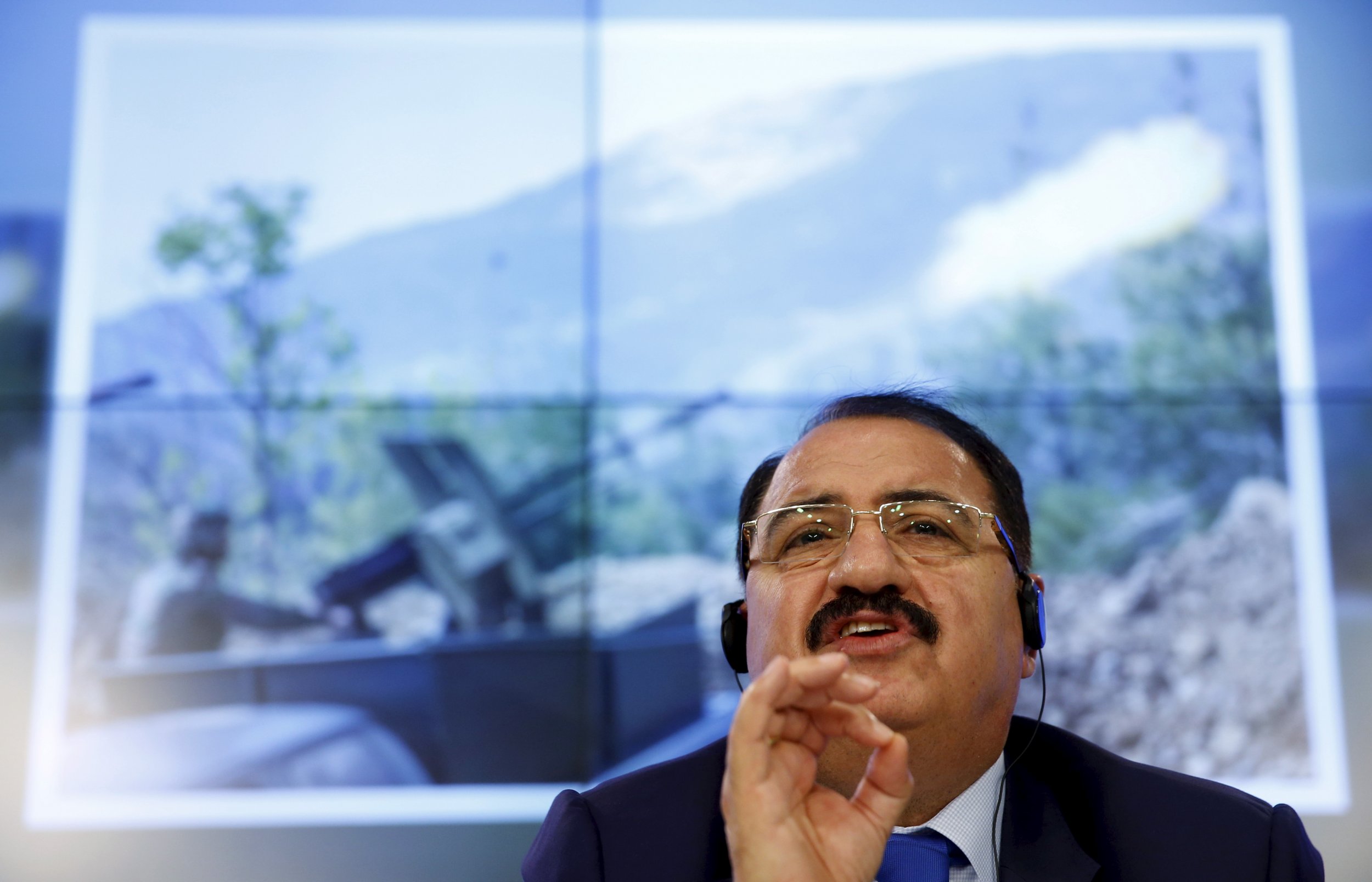
Russia started bombing raids in Syria this week, and despite Vladimir Putin's anti-ISIS rhetoric, their attacks focused not on ISIS but on anti-Bashar-Assad rebel groups in the western part of the country. Many of these groups are nominally allied with the United States, and Russian attacks will undoubtedly inhibit their ability both to fight against President Assad and to support the U.S. campaign against ISIS.
Despite this, U.S. officials must avoid increased intervention in Syria, where a knee-jerk reaction to Russia's actions could be disastrous. Instead, policymakers should focus on the positives: Russia's actions in Syria may be reprehensible, but they serve to highlight Russia's global weakness and could ultimately provide an opening for a diplomatic settlement in Syria.
In light of Russia's sudden entry into the Syrian civil war, pressure is already growing for policymakers to oppose Russia and step up U.S. involvement in Syria and Iraq. Many advocate increasing arms or financing to CIA-trained rebel groups. More radical proposals include the creation of a new Sunni army to battle ISIS, complete with embedded U.S. advisers.
Yet the problems surrounding increased U.S. intervention in Syria remain the same as always. There are few rebel groups left in Syria that could be considered "moderate" or acceptable to U.S. policymakers, while those that do exist are focused not on battling ISIS but on overthrowing the Assad regime.
And though some of Russia's targets are clearly moderate anti-regime forces, it has also targeted the Nusra Front and other extremist groups. There is no dubiety about Russia's motives here, which are focused on eliminating threats to the Assad regime, not fighting extremists. But stepping up support to these extremist groups simply because Russia has targeted them would be folly; the enemy of my enemy is not always my friend.
Russia's entry into the Syrian conflict also raises other concerns. Embedding U.S. advisers with rebel groups, for example, would increase the risk of accidental conflict between Russian and U.S. forces. Indeed, without effective "deconfliction," even current U.S. airstrikes in Syria run the risk of accidental conflict between Russia and the United States. The frightening possibility of direct conflict between two major, nuclear-armed states should give everyone pause.
U.S. officials have responded to Russia's involvement in Syria with heavy criticism, with Secretary of State John Kerry calling it a "grave concern." Yet Russia's involvement in Syria is a fait accompli, and one that raises the potential costs of increased U.S. involvement in Syria.
Instead of railing against the situation, therefore, policymakers should instead consider the positive aspects of this development. For one thing, Russia's new involvement removes some of the pressure from the U.S. to resolve the mess in Syria and Iraq alone. Despite Russia's support for the Assad regime, Putin's offer to create an anti-ISIS coalition is probably genuine. A de facto coalition between the U.S. allied coalition and Russian and Iranian-backed regime forces on the ground could well be the most effective way to degrade ISIS in the long run.
More important, policymakers should recognize Putin's plunge into the Middle East for what it is: a desperate attempt to appear strong during a period of Russian weakness. Russia's air commitment to Syria is small, including only 32 planes.
Russia will not be able to sustain airstrikes over a substantial period of time. And the popular backlash over casualties in Ukraine—a war supported by the majority of the Russian population—suggests the Kremlin will not be keen to commit ground troops to Syria.
Indeed, Russia's true weakness is manifest in the recent drop in hostilities in eastern Ukraine. As Russia pivots to Syria, fighting in Ukraine has effectively halted, and diplomats have finally agreed to the withdrawal of heavy weapons from the front lines.
Whether this signals an inability or simply unwillingness on the part of the Kremlin to engage in two consecutive campaigns is unclear. Regardless, it clearly shows the folly of characterizing Russia as a globe-straddling great power.
Russia's involvement in Syria also does not undermine the potential for a diplomatic solution to end the conflict. Indeed, by reducing the likelihood that the Assad regime will collapse soon, Russia's involvement makes it clear that there is no military solution to the question of who will govern Syria.
As such, it increases the incentive for all sides to work toward a negotiated settlement. While Assad's removal is preferable, a settlement that retains elements of his coalition and allows for the participation of other parties in a new government may be possible.
Russia's military misadventure in Syria is hardly desirable. Yet further U.S. intervention in Syria would be disastrous and risks bringing us into direct conflict with Russia. Policymakers would be smart to resist the impulse to intervene in response to Russian aggression. Instead, they should view Russian intervention for what it truly is: both a sign of weakness and a potential opportunity to resolve the Syrian crisis diplomatically.
Emma Ashford is a visiting research fellow with expertise in international security at the Cato Institute.
Uncommon Knowledge
Newsweek is committed to challenging conventional wisdom and finding connections in the search for common ground.
Newsweek is committed to challenging conventional wisdom and finding connections in the search for common ground.
About the writer
To read how Newsweek uses AI as a newsroom tool, Click here.






